- Home
- Bryce Courtenay
Sylvia Page 2
Sylvia Read online
Page 2
Back home with the seasons back to normal he worked sufficiently at his carpenter’s trade only so that he might drink and fornicate and be seen a generous fellow among the village men. He gave my mother none of his earnings but expected food on the table, a fire in the hearth and to receive all the attendant duties of an obedient and submissive wife. He was also a consummate liar and his outrageous tales of derring-do, if not for one minute true, were well told and worth the listening for the laughter and entertainment they brought. Is it not so that a coward’s stories of heroism are always more valiant than those modestly related by a true hero?
Whereas the ale contained in my father’s krug foamed with merriment among his drunken fellow villagers, the very same substance turned to bile in his stomach by the time he arrived home from the inn. My mother and I would hear him cursing and shouting abuse, sometimes crying out in pain as his peg leg jarred against a rut or entered into a hole in the uneven surface of the dark road. In the summer we would escape to the woods where we would pass the time singing.
We would return when the moon was halfway high in the summer sky, knowing that he would have collapsed into a drunken stupor, and we always drew comfort from the sound of snoring as we approached from the pigsty beside the cottage. But in the bitter winter snow there was no place to hide lest we freeze to death. While I cowered under the bed, my mother accepted an inevitable beating, dodging most of the clumsy blows my father, far from nimble on a wooden leg, aimed at her.
I was eight years old or thereabouts, in the winter of 1204, when at the age of twenty-eight my mother died of pleurisy. She was a woman of great character and resilience who took much pride in the fact that she came from free peasant stock and was not subject to tenure to the count who, together with the monastery, owned most of the land hereabouts. She was an only child and her parents, mindful of their precious daughter, had unknowingly caused her to be betrothed to a young carpenter, Peter of Pulheim, who was said to have excellent prospects. Thinking that his trade and diligence would allow their only child to prosper in her married life they were beguiled by his greedy parents and her father forewent the munt, the compensation due to him from the groom’s parents, thinking that to have his daughter well matched and safe was sufficient reward. It was soon apparent that my father was indolent, a ne’er-do-well and a drunkard who spent his days fighting and carousing and who used what little money he earned to support a life of profligacy.
Those were, as they still are, hard times, but my mother was a woman proficient in most things concerning the peasant way of life. With the death of both her mother and father scarce three years after her marriage she inherited a small cottage and half an acre of land. The land she worked assiduously, growing corn and cabbages, onions and turnips for sale at the village market and a few vegetables for our own use. She also kept six hens and a rooster and three pigs of a good breed, a boar and two sows that grew fat on the spoilt cabbage leaves and turnip tops.
The black boar was a splendid animal and my mother took great pride in him as his seed was plentiful; both sows were good mothers and every teat was occupied with robust piglets that she would fatten and sell for a good price. She would always donate one piglet to the Church, which put her greatly into favour with the priest, Father Pietrus. If all she touched in husbandry was blessed with fecundity this was not true of herself, and like her own mother she too seemed barren in the first years of her marriage. This gave my father the right in the eyes of the Church to divorce her. But if he was a wastrel he was by no means stupid. She gave him a fire in the hearth, his food and a warm bed and even money for drink, and kept her thoughts to herself while demanding nothing in return. She was barren and therefore in the eyes of men, the law and the Church she was useless, an empty vessel. The shame of being known as a ‘cast off’ was a greater humiliation than the beatings and the scorn she received from him. But then, on the eve of my father’s departure for Jerusalem came a late sowing of his seed that received God’s blessing and I was born while he was away in the Holy Land.
As my father’s drinking and bellicose behaviour grew he added infidelity to his list of public misdemeanours, taking up with wanton women and whores. He showed no improvement upon his return and would curse my mother for her girl child and her inability to give him a son and heir. Although she was often beaten, the shame his womanising brought her in the eyes of other married women was by far the worse punishment and increasingly she sought the solace of the Church. She possessed a natural and pleasant voice and took some pride in being allowed to sing a part of the Gregorian chant on her own when the convent choir was invited to perform before visiting ecclesiastics, a privilege usually only accorded a nun who possessed a sweet voice.
Eventually my father’s dissolute life was beginning to attract the attention of the burgomaster. I well recall my mother’s shame and relief when he would spend the night in the lockup. We would have the bed to ourselves and I loved these times when, snuggled into her arms, she would tell me stories and teach me the words and tunes of the many folksongs she knew.
But my mother was more, much more to me than these lovely nights spent together in bed. She would keep me constantly at her side while she worked, teaching me the ways of the seasons, of seeds, caring and harvesting of plants and the duties of animal husbandry. I’d accompany her to the markets where I soon learned how to sell and how to bargain. We would spend hours together in the nearby woods where we would take her precious pigs to forage, until I knew all the wild herbs to be gathered for seasoning, the mushrooms that were good to eat and those to be left well alone. In the high summer we’d pick blackberries and wild strawberries and we’d laugh and sing until we’d quite forgotten the burdensome male in our lives.
She would often grow serious in the middle of laughter. It was as if she had suddenly experienced a strange prescience. Then she would bid me come to her and clutch me, as though desperate, to her bosom. ‘My precious, I have long since forgiven every blow and bruise I have received from the drunken brute simply because his nascent seed finally brought my womb to life and God saw fit to give you to me.’ Then kissing my golden curls she would add as if she knew that she would not be at my side much longer, ‘Remember, Sylvia, you were late in coming into my life and so you have all the wisdom I have gained as I grew older. Whatever I know, you will know more abundantly and already your voice is sweeter and truer than my own. You are blessed with intelligence, a sweet nature and a lively character that will serve you well in life if you do not allow yourself to become too impetuous of spirit or let vanity at your coming beauty drain the charity from your soul. Hold your head high, my lovely child, let no one bring you down. A strong woman must be like the willow tree – while she bends to the wild and wicked winds of life she will endure.’
At the time I was too young to fully understand her words, nor did I think of myself as either pretty or tempestuous, though in the latter characteristic she has been proved to be right. In my younger years God blessed me with a certain beauty that proved as troublesome as it was an advantage. I loved and revered my mother with all my heart and while every child must try to honour and respect their father, he took such scant notice of me that I scarcely knew him when he was sober and feared and avoided him when he was drunk. Should he as much as touch me when he was in a drunken state my mother, who was otherwise compliant to all his wishes, would fly at him with a knife in her hand, eyes blazing. ‘Touch my child, you bastard, and I will wait until you sleep and kill you!’ she’d snarl.
Alas, with her death, I was now alone with my father who, no longer able to vent his anger on my mother and now free to do as he wished with me, would rape me when drunk. In one fell swoop I had gone from a loved, cherished and innocent child to becoming the victim of a wantonly cruel father who regularly slaked his lust on me. He would never rape me in the cottage, but instead drag me into the pigsty where he’d point to the black boar and in a slurred voice, he’d whine, ‘Your mother loved that brute more tha
n me!’ Then he’d push me face down over a broken wine barrel. ‘Let the bitch look now! See who has the last laugh!’ He’d lift my shift and with his peg leg stuck out at an angle, its brass point buried in pig shit, he would take me, meanwhile grunting and snorting like the three pigs jostling alongside.
When it was over he’d grab me by the hair and jerk me to my feet, turning my head so that I looked directly into his broken face. A sour smell issued from a mouth possessed of yellow rotting teeth and blackened stumps. ‘Sing! Sing for your papa,’ he’d growl, releasing his hand. Fighting back my tears, I would sing a folksong my mother had taught me. When it was over he’d place his huge hand upon my head. ‘Remember, it is I who have been forgiven past sins and will go on another crusade before I die to redeem myself for those I have since committed. It is you who are now the sinner condemned to hellfire.’ Then tucking away his vileness, he’d add in what he thought an amusing tone, ‘Never you mind, when you are older you too can be a pilgrim to the Holy Land, just like your brave papa who suffered so terribly in the name of the true Cross.’ Pausing to cackle at such an amusing notion, he’d exclaim, ‘Then, abracadabra, all your sins will be forgiven!’ With his tunic and pouch adjusted and his peg leg upright he’d reach into his pocket to produce a lump of honeycomb wrapped in a twist of cloth. ‘To sweeten you for the next time, liebling.’
There are few secrets in a small village and those who knew themselves my betters soon gave me the disparaging name Sylvia Honeyeater. Why I have to this day retained it I simply cannot say. I have no cause to remember those days with fondness and have been given many more flattering names in life. Perhaps we come to think of ourselves in a certain way and by removing a childhood name, no matter how disparaging, we lose some small part of ourselves. Today most folk think ‘Honeyeater’ such a pleasantly amusing appendage that it must have come about because of my sunny disposition. I have long since learned that the hurt that we acquire in life can be disguised behind a smiling face.
I missed and mourned for my sainted mother with a terrible ache, and prayed every night to God that while I knew myself to be a sinner condemned to roast in hell, He would protect her in heaven from knowing what was happening to me. Knowing myself condemned, I grew silent and withdrawn and showed my face in the village as little as possible, only attending religious feast days or venturing in when I had something I might sell in the market. As my mother had taught me I attended Church on Sunday. I would hide in the graveyard until the last of the worshippers had entered the building before creeping silently into a back pew, seating myself convenient to the door so that the moment the service was completed I might escape the curious and accusing eyes of the pious parishioners. While in Church I remained mute, concentrating on the sounds of the Gloria, refining in my head the purity of the notes flattened and corrupted by the tuneless voices of many of the nuns. Later in the woods I would spend hours alone practising and bringing to life the various hymns.
Because of my silence and unobtrusive manner I became an acute observer of people and I also began to understand the lives of the birds and the small forest creatures. I would spend as much of my summer days as I could in the woods that covered the slopes of the surrounding hills. As I had done with my mother, I gathered herbs, wild strawberries, blackberries and field mushrooms and dug for roots and lily bulbs to feed the pigs. Here I would sing all day while fossicking, and spend hours alone practising the hymns I had memorised while in Church. I could recite the mass word for word, even though it was in Latin and beyond my comprehension, and would often remember an entire sermon.
Singing brought me closer to the memory of my mother, who had so often praised my voice. ‘God,’ she would also say, ‘has lifted it from the soul of an angel who no longer sings in the heavenly choir and placed it as a precious instrument into your infant throat.’ After her death I sang at first only to myself and later sometimes to the village children who would venture into the woods to play, and so I gave it no worth other than that it comforted me and brought me within her imagined presence. Despite the vicissitudes seemingly overwhelming me, my sainted mother had left me with a strong sense of my own worth. My father’s vile and frightening actions condemning me to hellfire I locked away in a chamber within my heart. If I was denied the power to prevent him from harming me, then I told myself that within me remained someone uncorrupted and worthy of my mother’s precious memory.
I was seldom miserable for the company of friends my own age. With my mother as my sole company I had not previously cultivated any friendships with other children and so knew nothing of child’s play. To amuse myself I would have imaginary conversations out loud with various people I had observed or overheard in the village market. I would sit on the low wall of the pigsty and pretend the black boar was the village priest or the mayor or one or another of the more self-important town dignitaries, mimicking their voices as I conducted a conversation with them. I would use the sows to talk with the village women who loved to gossip and to condemn everyone or everything that didn’t fit in with their own narrow views on piety and life. I loved especially to imitate one fat, large-breasted woman, Frau Anna, known in the village as the Gossip Queen. She was self-important, pompous and possessed a loud and vociferous voice that offered an opinion on everything, but seldom had a kind word to say about anyone. Generally speaking, if I may say so, she was a thoroughly nasty piece of work. In the process of this lonely children’s game and unbeknownst to myself, I was becoming a very good mimic.
As a special treat to myself and after admonishing the black boar to be on his best behaviour I would turn him into the abbot at the nearby Monastery of St Thomas. The abbot, preaching as he sometimes did in the village church, would always delight me. While the village priest, Father Pietrus, intoned his message in a dogged and sonorous litany as if disinterested in the hallowed words of our Saviour and seeming anxious for his sermon to be over and done with, the abbot’s were filled with the fire and brimstone of the Old Testament. At its crescendo he’d often draw a deep breath until he’d become scarlet-faced, when he’d commence to hiss as if adding vehemence to a word yet to be formed and which finally emerged in an expostulation of spittle and sound. These truncated and strangled words that hissed like a goose and fought for release before exploding from his mouth I would greatly enjoy imitating, holding my breath, then making them stop dead with a hiss, then leaping them forth at the command of my nimble tongue.
This gift for mimicry, though of course at the time I wasn’t conscious that it was any more than the pastime of a lonely child, began at the age of seven or thereabouts when I began to imitate the calls and the songs of all the birds in the woods. The persistent call of the male cuckoo, the woodlark, redpoll, robin, hawfinch, flycatcher, the shy wood nuthatch, thrush and wren, the harsh caw of the crow, the chattering of a magpie and the assiduous cookerooing of the wood pigeon and the turtle-dove, even the woodpecker and many more were all grist for my mellifluous tongue. I was careful with the call of a raven or a jackdaw as they brought on evil omens. I learned to distinguish the mating calls of all the cock birds and soon enough I could draw them as well as the hens to my presence at will, until the trees above me trilled with the birdsong of courtship.
Then one indifferent autumn day when the sun seemed to be spending most of its time behind threatening storm clouds all this changed for me. I stood in my usual place in the market, my eyes downcast, hands folded at my waist, silently taking in the chatter around me when the Gossip Queen, Frau Anna, waddled up to me. She was one of three market women who seemed always to be together: the other two I had nicknamed Frau Frogface and Frau Gooseneck. The first because her head seemed broader than it was high as if it had been placed in a clamp top and chin and squeezed causing her eyes to bulge and lips to protrude. The second for her small rounded head, sharp nose, beady eyes and long neck that constantly moved from side to side as if she was trying to locate a bad smell. Frau Anna was too well-known as the Gossip Queen to be renamed.
Now she stood in front of me, her breasts heaving, her heavy leather-booted legs apart. She looked down at my naked feet in apparent distaste, then her eyes travelled across my ragged gown and still further up, lingering purse-lipped on my dirty face, runny nose and matted blonde hair. Whereupon she sniffed, jerked her chin in disapproval and pointed a fat finger at a small heap of field mushrooms, dropping a coin into the dirt at my feet. I bent down and silently scooped up the mushrooms and placed them carefully into her basket, then reached to retrieve the coin. ‘Whore! Satan’s child!’ she hissed, whereupon I heard a sharp ‘phfft’ as she spat, a glob of spittle landing on the back of my neck.
I shall never know what possessed me; her insult was no worse than many others I had received at the hands of the self-righteous villagers. I would carry their cruel words home in silence where I’d crawl into a dark corner and weep for their reminder of the miserable sinner my wanton father had caused me to become. Barely conscious of my own voice or that the sun at that very moment had come out, bathing the corner in which I stood in bright sunlight, I commenced to sing the Gloria Patri, my voice rising above the noise of the marketplace. It is a short hymn, but well before I had come to the end a silence fell upon the market crowd who quickly gathered around me. Not knowing how to extract myself from the predicament in which I had so stupidly placed myself I followed this first hymn with a second longer one, the Gloria in Excelsis. Almost at the precise moment I’d completed the hymn, as suddenly as it had arrived the sun disappeared, followed shortly by a soft rumble of far-off thunder. To my consternation I saw that several of the more humble village folk had come to kneel at my dirty feet.
And so a different stage in my childhood had arrived. The incident at the market became known as the ‘Miracle of the Gloria’. Those who boasted that they had been present that morning told how the general hubbub of the market stalls had suddenly ceased as a blindingly bright light appeared to surround me. They watched and saw my eyes take on a fiery red glow as the demon within me looked outwards and an expression of abject terror appeared on my face, contorting it horribly, so that they knew I was possessed by Beelzebub. As they drew back in fear, the glorious light began to enter my mouth and the demon’s transmuted eyes immediately began to fade and mine return to a deep sublime blue. Whereupon my face softened to a beatific smile, as if I had just received a divine kiss from the Virgin Mary. At that precise moment my mouth opened and I commenced to sing the Gloria Patri in the voice of an angel, followed by the Gloria in Excelsis, causing many of those present to fall to their knees in prayer. As I came to the end of this second hymn of praise a great clap of thunder caused the earth to tremble around me.

 The Potato Factory
The Potato Factory The Power of One
The Power of One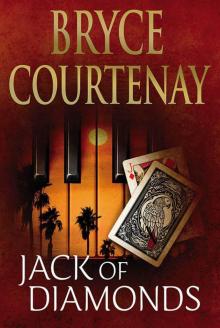 Jack of Diamonds
Jack of Diamonds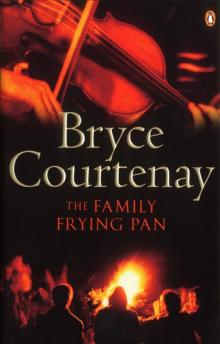 The Family Frying Pan
The Family Frying Pan April Fool's Day
April Fool's Day Smoky Joe's Cafe
Smoky Joe's Cafe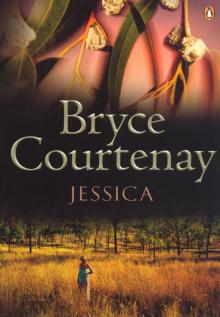 Jessica
Jessica Matthew Flinders' Cat
Matthew Flinders' Cat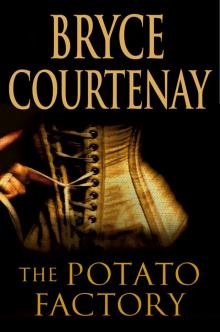 Potato Factory
Potato Factory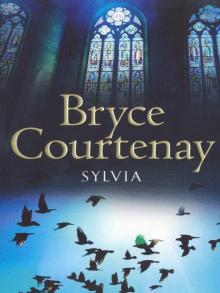 Sylvia
Sylvia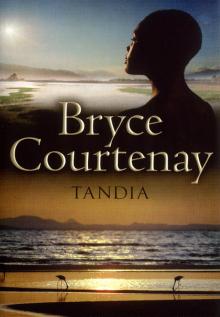 Tandia
Tandia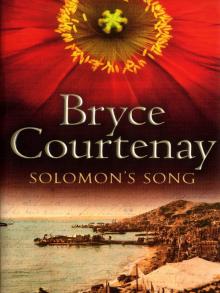 Solomon's Song
Solomon's Song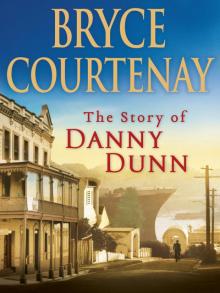 The Story of Danny Dunn
The Story of Danny Dunn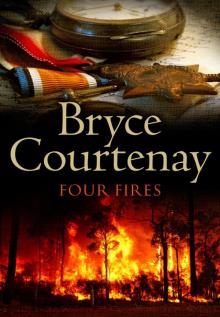 Four Fires
Four Fires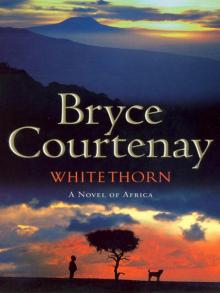 Whitethorn
Whitethorn Tommo and Hawk
Tommo and Hawk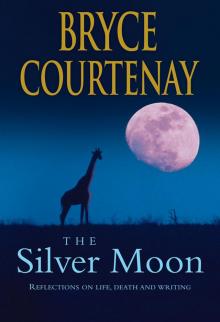 The Silver Moon
The Silver Moon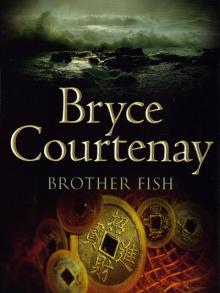 Brother Fish
Brother Fish FORTUNE COOKIE
FORTUNE COOKIE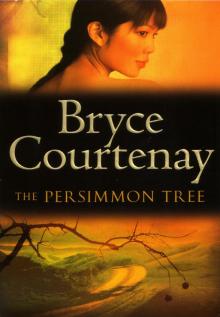 The Persimmon Tree
The Persimmon Tree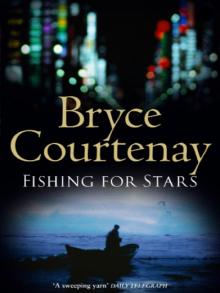 Fishing for Stars
Fishing for Stars